Fintech PR
SOLVING THE CLIMATE CRISIS IS WITHIN REACH BUT A LACK OF FORTITUDE THREATENS TO STALL PROGRESS
GENERATION INVESTMENT MANAGEMENT’S 8TH ANNUAL SUSTAINABILITY TRENDS REPORT HIGHLIGHTS THE WEAKENING OF CLIMATE COMMITMENTS AND BREAKING OF PROMISES
LONDON and SAN FRANCISCO, Sept. 18, 2024 /PRNewswire/ — Generation Investment Management, the sustainable investment manager, today published its eighth Sustainability Trends Report, which annually seeks to answer the question of where the world stands in the transition to a low-emissions economy. This year’s assessment analyses how climate promises are starting to resemble New Year’s resolutions: easy to make, hard to keep. It also covers the shifts needed across the global economy – spanning the power sector; transportation; buildings; industry; people, land & food; and climate finance.
Al Gore, Chairman and Founding Partner of Generation Investment Management, said: “Year after year, the world has increased the number and types of solutions available to solve the climate crisis. But leaders across government and business have all too frequently failed to match ingenuity with action. Despite the hype, hope and harmony generated by the agreement at last year’s international climate negotiations to “transition away” from the fossil fuels that are the root cause of the climate crisis, the reality today is that way too little has improved at the pace and scale needed. It is imperative that investors, business leaders and government officials understand that even though the collective ability to solve the climate crisis is within our reach, a lack of courage, fortitude and determination at a global scale threatens to allow the progress that is so urgently needed to slip through our fingers.”
TRANSITION FROM FOSSIL FUELS – WRITTEN INTO INTERNATIONAL LAW AT LONG LAST
The great achievement of the United Nations Climate Change Conference (COP28) held in Dubai in December 2023 was that transitioning away from fossil fuels is now a formal goal of the countries of the world, written into international law. The biggest climate promise ever made is finally on the table and humans have it within their grasp to effect change at the scale and pace required.
The language of the COP28 agreement is fairly weak, however, with calls rejected for using the term ‘phase out’ in relation to fossil fuels, and no detail about how to achieve the transition. But countries did agree to set new goals relating to the energy transition, agreeing to triple the world’s installed base of renewable electricity by 2030. The potential impact of this cannot be overstated because the grid system will become the key to the future, enabling the shift to what is effectively an ‘electrify everything’ approach.
BROKEN PROMISES, FRESH HOPES
Climate commitments have been dealt a blow in recent times. Political pressure and ‘woke capital’ attacks over the past two years have contributed to reductions of capital allocated to sustainable investing and nowhere is this more disappointing than amongst the financial-services industry which has pulled back from commitments made only a couple of years ago. Oil and gas companies have been pulling back on their commitments to invest in alternative energy while maintaining or increasing their fossil investments, deepening a credibility gap between their rhetoric about net zero and their actions.
Against this negative backdrop, there remains plenty of hope because it is possible that we are on the precipice of a different momentous change. Renewable electricity is growing rapidly now, so much so that emissions from power production are falling sharply in some countries. Moreover, electricity demand is starting to grow in many developed economies where it had been stagnant for a decade. This is mostly good news, for it means that the exhortation to ‘electrify everything’ is working. Focus then shifts to the significant grid upgrades required to harness the wave of low-cost solar and wind, the answer of which lies in urgent improvements to planning and reductions in red tape. To achieve this, a step change is required from one specific set of actors: governments. They hold the keys to make the policy changes to unleash the expansion of electrification, at least in the major economies of China, the US, the EU, Latin America and India.
IS THE GEOPOLITICS OF CLIMATE TRANSITION BROKEN?
Important, large-scale change requires the determination and courage of groups of people to make things happen. But geopolitics also poses a significant threat to any kind of progress in the transition. China was the biggest investor in clean energy in 2024, is the largest producer of solar panels, electric cars, electric buses, and the most important manufacturer of advanced batteries. But China’s return to an aggressive form of authoritarianism under Xi Jinping has put it at loggerheads with many of its trading partners. China’s military adventurism, its threats to invade Taiwan, its theft of technology from other countries, its repression of the Uyghur ethnic group and many other factors are leading to something like a Cold War between China and the West – which could lead to the energy transition getting caught up in the crossfire.
Elsewhere in the world, observers will be closely watching the results of this year’s US election. The Inflation Reduction Act has created a positive framework for change but the wider signals in the US do not paint a wholly positive picture. The prospect of new tariffs, trade barriers, protectionism or tearing up international treaties altogether threatens to cast a large shadow over the world economy and its efforts to deliver on decarbonisation in this critical decade.
Accelerating trends outlined in the report include:
Power
- Renewable electricity is now growing rapidly, with solar energy being the breakout star, with the installation of new panels up 74 percent in a single year. But power demand is starting to grow rapidly too: new data centres are gulping down electricity, and more cars and heat pumps are drawing power from the grid. It remains unclear when we will turn the corner and see electricity emissions finally begin to fall.
Transport
- The transition to electric cars is hitting speed bumps in some markets, notably the United States, with carmakers like Ford scaling back their transition plans. But other countries are moving forward, especially China, where electric cars are now the economical choice and are taking half the new-car market. We have yet to see much progress in cutting emissions from planes, ships or lorries/trucks.
Buildings
- The buildings sector is not remotely on track for the emissions cuts needed to meet global climate goals. The slow progress from tougher building codes in some countries is being swamped by breakneck urbanisation and weak or non-existent building codes in many countries. Heat pumps are a bright spot, their popularity rising in some parts of the world.
Industry
- Progress is still halting in the industrial sector, but we are beginning to see movement. Plans were announced for new low-emissions steel plants using clean hydrogen, with the number of such factories on the drawing board rising from two to six. Green hydrogen is critical to the emissions-cutting plans of some other industries, and electrolyser additions in 2023 were more than quadruple 2022 additions. The world also needs to get control of plastic pollution – industry is responsible for the 34% of excess carbon dioxide entering the atmosphere, and plastic accounts for three percentage points of this.
People, land & food
- The climate crisis seems to be contributing to high food prices that have driven the number of hungry people in the world up by 150 million in this decade. Global hunger worsened during the pandemic in 2020 and the problem has not abated. Far more work needs to be done by governments to secure the food supply in an overheating climate and to encourage the spread of better farming practices. The destruction of tropical forests has abated somewhat under a new government in Brazil, and Indonesia has had dramatic success in cutting deforestation through the actions of the central government, but the topic remains an urgent global problem.
Financing the transition
- We have finally reached the point where nearly $2 is being spent on clean energy infrastructure for every $1 spent on fossil fuels, a ratio that was closer to 1-to-1 only five years ago. But clean investment needs to accelerate rapidly, to $4 trillion or $5 trillion a year by 2030, to meet the world’s climate goals. Big banks are still shovelling tens of billions into the development of new fossil fuels, despite their pledges to align their lending with the climate transition.
Looking ahead
- A fundamental tension has developed in the energy transition: governments want to use it as a core element of their industrial policy, to create new jobs in domestic factories, even as they try to move rapidly to clean energy. The two goals are in conflict, given China’s nearly insurmountable head start in solar panels, electric cars, batteries and other green technologies. How this tension gets resolved will determine how fast the energy transition can proceed.
About Generation Investment Management
Generation Investment Management LLP is dedicated to long-term investing, integrated sustainability research and client alignment. It is an independent, private, owner-managed partnership established in 2004 and headquartered in London, with a US presence in San Francisco, with more than $44 billion of assets under management and supervision.1 For further information, please visit https://www.generationim.com/
1 Assets under management as at 30 June 2024 are $33.8 billion. Assets under supervision (AUS) are $10.5 billion as at 31 March 2024. AUS form part of our Private Equity strategy and include assets where Generation sourced, structured and/or negotiated the investment and in relation to which it provides certain ongoing advisory services for a fee.
Media Contact
Richard Campbell
Kekst CNC
[email protected]
+44 (0) 7775 784 933
View original content:https://www.prnewswire.co.uk/news-releases/solving-the-climate-crisis-is-within-reach-but-a-lack-of-fortitude-threatens-to-stall-progress-302250198.html

Fintech PR
Introducing Adyen Uplift: The payment solution optimizing every transaction with AI

- Piloted by 60 enterprise businesses including: Patagonia, On, Indeed, NordSecurity and Fubo
- AI helps businesses increase payment conversion rates by up to 6% compared to legacy implementations
NEW YORK, Jan. 9, 2025 /PRNewswire/ — Adyen, the global financial technology platform of choice for leading businesses, announces the launch of Adyen Uplift. The AI-powered payment optimization suite will help businesses increase payment conversion, simplify fraud management, and reduce the cost of payments. Adyen’s customers can utilize data-driven, tailored performance recommendations and opportunities to test different payment configurations to maximize performance.
Saving businesses from trading off between conversion, risk, and cost
The complexity of payment management still holds businesses back from reaching their ambitions. They constantly need to compromise between conversion, fraud, and cost. Thanks to Adyen Uplift, businesses can optimize the full payments funnel with AI. AI-powered payment optimizations bundled in a single product suite are trained on Adyen’s global transaction dataset. Rather than navigating the complexity of payments in operational silos, the AI-first approach uses risk-based intelligence and automated conversion optimization to help businesses get more out of payments. The pilot has shown a significant effect on profits, with businesses seeing an overall uplift of up to 6% on their payment conversion rate.
“Balancing risk management, driving conversion, and minimizing cost has always required ineffective compromises – until now” said Carlo Bruno, VP of Product at Adyen. “Adyen Uplift changes the game by unleashing the depth and power of AI to solve for real-time payment optimization. This will transform cost savings and performance, redefining business efficiency in 2025 and beyond.”
$1 trillion+ payments data
Businesses and other providers rely on limited datasets, impacting their ability to recognize shoppers and payment behavior. With Adyen Uplift, companies benefit from AI trained on over a trillion dollars worth of global payments data from Adyen’s single platform.
“We’ve increased our conversion rate by up to 2% with Adyen’s AI, making a real difference to both our performance and cost efficiency, while keeping fraud under control,” commented Luca Spichtig, Head of Digital Operations & Projects at On.
Adyen has processed payments for over one billion consumers globally, giving its AI solutions a strong basis to differentiate good shoppers from fraudsters. When an Adyen customer encounters a new shopper, there is a high likelihood that Adyen has seen the shopper elsewhere on the platform. For a retail merchant on the Adyen platform, there is more than a 90% chance that Adyen has seen that shopper before. When a good shopper is identified, AI optimizations allow them to speed through checkout whilst shoppers and retailers also benefit from precise payment fraud mitigation.
“We’ve increased our conversion rate on customer initiated transactions by 10% by leveraging Adyen’s AI technology, which optimizes the entire payment funnel while maintaining control over fraud and costs,” commented Kes Saulis, Head of Payments at Nord Security.
The AI-first approach to fighting fraud
Today, the fraud control process is highly complex, requiring businesses to implement extensive manual rules to combat ever-evolving fraud techniques. With Adyen Uplift, businesses can automate fraud control by removing the operational burden from fraud management teams. The solution automates and refines risk management without relying on manual rules. This enables businesses to lower fraud levels and reduce false positives, depending on their risk appetite.
Businesses piloting the risk product have seen the impact firsthand. Adyen’s pilot enterprise customers have reduced their manual risk rules by 86% on average, and 35% of customers have completely eliminated manual rules saving valuable time and resources.
Adyen’s customer Indeed, a leading job matching and hiring platform, was able to run AI-based optimization experiments that are tailored to the unique characteristics of its business. This translated into a reduction in operational workload by automating processes to drive efficiency.
Reduce payment processing costs by up to 5%
Today, businesses are more focused than ever on their bottom line, yet many still view payments as a commodity rather than a powerful cost-saving strategy.
Adyen Uplift has reduced payment cost by up to 5% for pilot customers in the U.S. Adyen’s AI selects the best routes with the best rates for transactions to help minimize total cost of payment. Pilot customers also experienced cost savings through Adyen’s optimizations, which tailored the shopper-facing checkout flow to their needs.
To learn more about Adyen Uplift, click here.
About Adyen
Adyen (ADYEN:AMS) is the financial technology platform of choice for leading companies. By providing end-to-end payments capabilities, data-driven insights, and financial products in a single global solution, Adyen helps businesses achieve their ambitions faster. With offices around the world, Adyen works with the likes of Meta, Uber, H&M, eBay, and Microsoft. Adyen continuously improves and expands its product offering as part of its ordinary course of business. New products and features are announced via press releases and product updates on the company’s website.
Logo – https://mma.prnewswire.com/media/1490851/Logo__Adyen_green_RGB_Logo.jpg
![]() View original content:https://www.prnewswire.co.uk/news-releases/introducing-adyen-uplift-the-payment-solution-optimizing-every-transaction-with-ai-302347156.html
View original content:https://www.prnewswire.co.uk/news-releases/introducing-adyen-uplift-the-payment-solution-optimizing-every-transaction-with-ai-302347156.html

Fintech PR
Crisil unveils a new brand identity

New logo reflects ability to power mission-critical decisions with confidence
LONDON, Jan. 9, 2025 /PRNewswire/ — Crisil Limited, a provider of ratings, data, research, analytics and solutions, today unveils its new brand logo.
The new brand identity, ‘Crisil’ (earlier written as CRISIL), reinforces the company’s position as a global, insights-driven analytics firm, building on a distinguished legacy of close to four decades.
Large and highly respected firms partner with us for the most reliable opinions on risk in India, and for uncovering powerful insights and turning risks into opportunities globally. We are integral to multiplying their opportunities and success.
Says Amish Mehta, Managing Director & CEO, Crisil, “Our reimagined brand expresses a more progressive vision of our future. It celebrates a pioneering and illustrious past and showcases our commitment to deliver actionable insights to clients. Our people’s analytical rigour and domain expertise will continue to set standards and empower clients to make mission-critical decisions with confidence. The new brand identity guides us in shaping how we present ourselves to the world, influencing every interaction internally and externally to help us deliver exceptional client value.”
The strategic brand transformation positions Crisil’s businesses — Crisil Ratings, Crisil Intelligence (formerly MI&A), Crisil Coalition Greenwich, and Crisil Integral IQ (formerly GR&RS) — under a cohesive identity that offers a consistent and more connected experience for clients around the world.
Crisil Ratings: Offers independent credit ratings in India that empower informed decisions and objective benchmarking by lenders, investors and issuers.
Crisil Intelligence: Offers insights, consulting, technology-driven risk solutions and advanced data analytics, serving clients across government, private and public enterprises, empowering them to make informed decisions.
Crisil Coalition Greenwich: Offers strategic benchmarking, analytics and insights to the financial services industry and specialises in providing unique, high-value and actionable information to help clients measure and drive their business performance.
Crisil Integral IQ: Offers solutions and actionable intelligence to financial institutions around the globe to deliver strategic transformation, optimise risk and drive operational excellence.
The main logo in bold black is simple yet strong, symbolising excellence and the certainty that we deliver. Complementing this, our business logos now feature a distinct teal colour that conveys the confidence and trust rooted in rigour and domain expertise.
About Crisil Limited
Crisil is a global, insights-driven analytics company. Our extraordinary domain expertise and analytical rigour help clients make mission-critical decisions with confidence.
Large and highly respected firms partner with us for the most reliable opinions on risk in India, and for uncovering powerful insights and turning risks into opportunities globally. We are integral to multiplying their opportunities and success.
Headquartered in India, Crisil is majority owned by S&P Global.
Founded in 1987 as India’s first credit rating agency, our expertise today extends across businesses: Crisil Ratings, Crisil Intelligence, Crisil Coalition Greenwich and Crisil Integral IQ.
Our globally diverse workforce operates in the Americas, Asia-Pacific, Europe, Australia and the Middle East, setting the standards by which industries are measured.
For more information, visit www.Crisil.com
Connect with us: LINKEDIN | TWITTER | YOUTUBE | FACEBOOK
Disclaimer
This press release is transmitted to you for the sole purpose of dissemination through your newspaper/ magazine/ agency. The press release may be used by you in full or in part without changing the meaning or context thereof but with due credit to Crisil. However, Crisil alone has the sole right of distribution of its press releases for consideration or otherwise through any media including websites, portals, etc.
Crisil has taken due care and caution in preparing this press release. Information has been obtained by Crisil from sources which it considers reliable. However, Crisil does not guarantee the accuracy, adequacy or completeness of information on which this press release is based and is not responsible for any errors or omissions or for the results obtained from the use of this press release. Crisil especially states that it has no financial liability whatsoever to the subscribers/ users/ transmitters/ distributors of this press release.
Logo: https://mma.prnewswire.com/media/2594759/Crisil_Limited_New_Logo.jpg
Photo 1: https://mma.prnewswire.com/media/2594763/Crisil_Ratings_Logo.jpg
Photo 2: https://mma.prnewswire.com/media/2594762/Crisil_Intelligence_Logo.jpg
Photo 3: https://mma.prnewswire.com/media/2594760/Crisil_Coalition_Greenwich_Logo.jpg
Photo 4: https://mma.prnewswire.com/media/2594761/Crisil_Integral_IQ_Logo.jpg
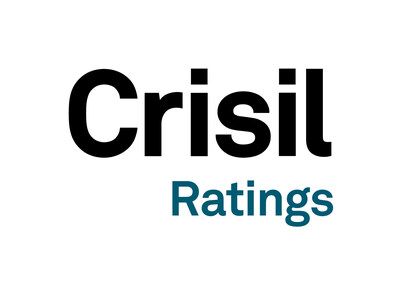
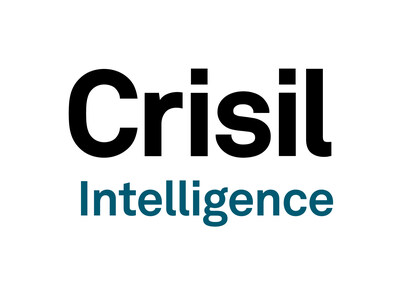
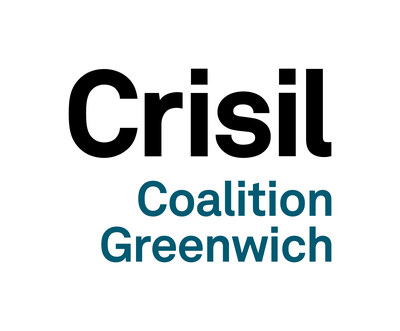
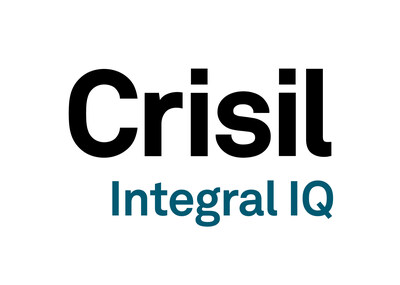
![]() View original content:https://www.prnewswire.co.uk/news-releases/crisil-unveils-a-new-brand-identity-302347103.html
View original content:https://www.prnewswire.co.uk/news-releases/crisil-unveils-a-new-brand-identity-302347103.html

Fintech PR
MANTRA and DAMAC Group Revolutionize Tokenized Real-World Assets with US$1 Billion Deal
DUBAI, UAE, Jan. 9, 2025 /PRNewswire/ — MANTRA, a purpose-built layer 1 blockchain for tokenized real-world assets (RWAs) has signed a US$1 billion agreement with DAMAC Group, a prominent investment conglomerate, renowned for its diversified portfolio that spans across key sectors such as real estate development, hospitality, data centres, and more, to tokenize assets in the Middle East.
The collaboration between MANTRA and the DAMAC Group will enable token-based financing for a diverse range of assets within the group’s extensive portfolio of companies, with a minimum value of US$1 billion.
The DAMAC Group assets will be available in early 2025, exclusively on MANTRA Chain, marking a bold step in leveraging blockchain technology to bring greater transparency, security, and accessibility to DAMAC Group’s wide-ranging assets. This milestone partnership is yet another step in MANTRA’s vision to become the preferred ledger of record for real-world assets.
“This partnership with DAMAC Group is an endorsement for the RWA industry. We’re thrilled to partner with such a prestigious group of leaders that share our ambitions and see the incredible opportunities of bringing traditional financing opportunities onchain,” said John Patrick Mullin, CEO of MANTRA.
Amira Sajwani, Managing Director of Sales & Development at DAMAC, said, “DAMAC is always exploring new technologies to enhance our product offerings. Partnering with MANTRA is a natural extension of our commitment to innovation and forward-thinking solutions. Tokenizing our assets will provide investors with a secure, transparent, and convenient way to access a wide range of investment opportunities.”
The MANTRA and DAMAC Group partnership follows the recent announcement of MANTRA Chain’s Mainnet launch, which went live in October, representing a significant milestone in the integration of traditional finance with blockchain technology.
About MANTRA:
MANTRA is a purpose-built Layer 1 blockchain for real-world assets, capable of adherence to real world regulatory requirements. As a permissionless chain, MANTRA empowers developers and institutions to seamlessly participate in the evolving RWA tokenization space by offering advanced tech modules, compliance mechanisms, and cross-chain interoperability.
Website | Twitter | LinkedIn | Discord
About DAMAC Group:
The DAMAC Group is the multi-billion-dollar business conglomerate of UAE based Hussain Sajwani. The Group’s investments are divided into seven core areas; real estate, capital markets, hotels & resorts, manufacturing, catering, high-end fashion and data centres.
Some of the Group’s most notable activities include DAMAC Properties, one of the region’s largest property developers, the acquisition of the Italian fashion house, Roberto Cavalli and luxury Swiss jewellery brand de GRISOGONO, the 50-storey development DAMAC Towers Nine Elms in London and a luxury resort in the Maldives.
In a bid to disrupt the global data centre landscape, the Group recently announced plans to build data centres through its digital infrastructure company, EDGNEX Data Centers by DAMAC, across different global locations.
Today, the Group’s global footprint extends across North America, Europe, Asia, Middle East and Africa. With its vision firmly set on growth and expansion, the Group continues in its quest for diversification and business excellence.
Visit us at www.damacgroup.com
View original content:https://www.prnewswire.co.uk/news-releases/mantra-and-damac-group-revolutionize-tokenized-real-world-assets-with-us1-billion-deal-302346789.html

-

 Fintech PR6 days ago
Fintech PR6 days agoBybit x Block Scholes Report: BTC Options Steady with Call-Put Parity, ETH Braces for Short-Term Volatility
-

 Fintech PR6 days ago
Fintech PR6 days agoArtificial Intelligence (AI) in Trading Market to Reach USD 35 Billion by 2030, Growing at a 10% CAGR | Valuates Reports
-

 Fintech PR7 days ago
Fintech PR7 days agoDataLend: 2024 Securities Lending Revenue Down 10% YoY to $9.64 Billion
-

 Fintech PR6 days ago
Fintech PR6 days agoYear-opening Triumph: Arctech Lands a 1.5GW Solar Project Order in the UAE
-
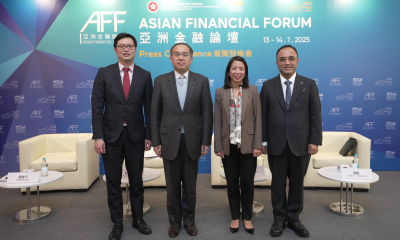
 Fintech2 days ago
Fintech2 days agoAsian Financial Forum held next week as the region’s first major international financial assembly of 2025
-

 Fintech PR2 days ago
Fintech PR2 days agoOWIT Global Provides Alternative Delivery Models that Adapt to the Continuously Evolving Data Security Demands of the Industry
-

 Fintech PR4 days ago
Fintech PR4 days agoHyundai Motor Group Executive Chair Euisun Chung Outlines 2025 Vision Driven by Commitment to Innovation, Overcoming Challenges, and Creating Opportunities in New Year’s Message
-

 Fintech PR4 days ago
Fintech PR4 days agoZoomlion Accelerates Global Expansion with Localized Innovations in Saudi Arabia




